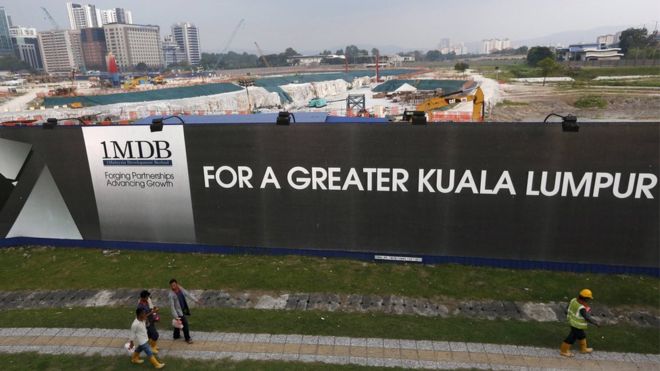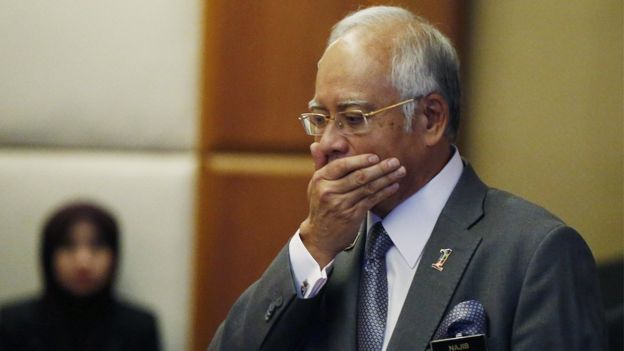Malaysia 1MDB scandal: Investigators say about $4bn may be missing from fund

About $4bn (£2.8bn) may have been stolen from a fund owned by the Malaysian state, a prosecutor says.
The 1MDB fund was set up in 2009 to pay for major new economic and social developments in Malaysia.
Last year, Swiss authorities opened an investigation into 1MDB after it amassed more than $11bn (£7bn) of debt.
Switzerland's attorney general said on Friday there were "serious indications that funds have been misappropriated from Malaysian state companies".
The full background to the 1MDB scandal
Malaysia PM in the clear?
Some of the money, the office of Michael Lauber said, had been transferred to Swiss accounts held by Malaysian former public officials and current and former public officials from the United Arab Emirates.
"To date, however, the Malaysian companies concerned have made no comment on the losses they are believed to have incurred," the attorney general's statement said (in German).
Mr Lauber called on Malaysian authorities to give full judicial assistance to their Swiss counterparts.
A Swiss investigation into 1MDB was opened last year, citing "suspected corruption of public foreign officials, dishonest management of public interests and money laundering".
In a statement on Saturday, 1MDB said it "remains committed to fully co-operating with any lawful authority and investigation", but had not yet heard from any foreign legal authorities.
Regulators in the US and Hong Kong are also reported to be investigating 1MDB.
The fund's advisory board is chaired by Prime Minister Najib Razak, who launched 1MDB soon after taking office in 2009.
Last July, Malaysia's then-Attorney General Abdul Gani Patail linked a donation of $681m (£478m) made to Mr Najib's account with companies and bodies which had ties to 1MDB.
Mr Patail was replaced, and, after an investigation, his successor last week cleared Mr Najib of corruption saying that the money was a personal donation by the Saudi royal family to the prime minister's private bank account.
"I am satisfied that there is no evidence to show that the donation was a form of gratification given corruptly," said Attorney-General Mohamed Apandi Ali.
Most of the money was later returned, he said.
Malaysia's anti-corruption commission said it would seek a review of the attorney-general's decision.
Политика конфиденциальности | Правила пользования сайтом








